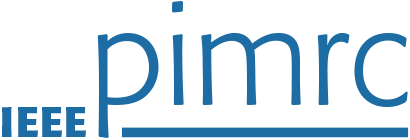Background
Numerous techniques have been developed in the past decade for wireless networks, including among others MU-MIMO, CoMP, Massive MIMO, NOMA, millimetre wave MIMO, relay. All those techniques rely on two extreme interference management strategies, namely fully decode interference and treat interference as noise. Indeed, while NOMA based on superposition coding with successive interference cancellation relies on strong users to fully decode and cancel interference created by weaker users, MU-MIMO/Massive MIMO/CoMP/millimetre wave MIMO based on linear precoding rely on fully treating any multi-user interference as noise. In this workshop, we argue that to efficiently cope with the high throughput, reliability, heterogeneity of Quality-of-Service (QoS), and massive connectivity requirements of future multi-antenna wireless networks, multiple access and multiuser communication system design need to depart from those two extreme interference management strategies, namely fully treat interference as noise (as commonly used in 4G/5G, MU-MIMO, CoMP, Massive MIMO, millimetre wave MIMO) and fully decode interference (as in NOMA).
This workshop is dedicated to the theory and applications of a more general and powerful transmission framework based on Rate-Splitting (RS) that splits messages into common and private parts and enables to partially decode interference and treat remaining part of the interference as noise. This enables RS to softly bridge and therefore reconcile the two extreme strategies of fully decode interference and treat interference as noise and provide room for spectral efficiency, energy efficiency and QoS enhancements, robustness to imperfect channel state information at the transmitter (CSIT), and feedback overhead and complexity reduction. In order to partially decode interference and partially treat interference as noise, RS relies on the transmission of common messages decoded by multiple users (but intended to one or a subset of those users), and private messages decoded by their corresponding users. As a result, RS pushes multiuser transmission away from conventional unicast-only transmission to non-orthogonal unicast multicast transmission and leads to a more general class/framework of strategies. For instance, in a multi-antenna multi-user system, RS has been shown to encompass NOMA and SDMA/MU-MIMO with linear precoding as special cases. Through information and communication theoretic analysis, RS has been shown to be optimal (from a Degrees-of-Freedom region perspective) in a number of scenarios and provide significant benefits in terms of spectral efficiencies, reliability and CSI feedback overhead reduction over conventional strategies that rely on fully treat interference as noise (SDMA) or fully decode interference (NOMA). In conclusion, RS provides a powerful framework for the design and optimization of non-orthogonal transmission, multiple access, and interference management strategies. Thanks to its versatility, RS has the potential to tackle challenges of modern communication systems and is a gold mine of research problems for academia and industry, spanning fundamental limits, optimization, PHY and MAC layers, and standardization.
This workshop is dedicated to the theory, design, optimization and applications of rate splitting in many different scenarios relevant to wireless communication and signal processing. The workshop will give the audience a comprehensive introduction of the state-of-the-art development in rate splitting theory and applications in the wireless communication and signal processing society.
Agenda
Invited Speakers
“Efficient Global Optimization as Enabler for Rate-Splitting Technologies”
Prof. Eduard Jorswieck, TU Braunschweig, Germany
“Rate-Splitting (Multiple Access) for 6G”
Prof. Bruno Clerckx, Imperial College London, UK
Technical Presentations
- “Rate-Splitting Multiple Access for Downlink Multi-Antenna Communications: Physical Layer Design and Link-level Simulations” Onur Dizdar; Yijie Mao; Wei Han; Bruno Clerckx
- “Efficient Rate Splitting Method Using Successive Beamforming Techniques” Christoph Kaulich; Michael Joham; Wolfgang Utschick
- “Link-Level Performance of Rate-Splitting Based Downlink Multiuser MISO Systems” Hongzhi Chen; De Mi; Zheng Chu; Pei Xiao; Yin Xu; Dazhi He
- “Rate-Splitting Multiple Access for Multi-Antenna Broadcast Channel with Imperfect CSIT and CSIR” Jihye An; Onur Dizdar; Bruno Clerckx; Wonjae Shin
- “Rate Splitting Multiple Access in C-RAN” Alaa Alameer Ahmad; Yijie Mao; Aydin Sezgin; Bruno Clerckx
- “Cooperative Rate-Splitting for Secrecy Sum-Rate Enhancement in Multi-antenna Broadcast Channels” Ping Li; Ming Chen; Yijie Mao; Zhaohui Yang; Bruno Clerckx; Mohammad Shikh-Bahaei
Organizers:
- Bruno Clerck, Imperial College London, UK, b.clerckx@imperial.ac.uk
- Yijie Mao, Imperial College London, UK, y.mao16@imperial.ac.uk
- Wonjae Shin, Pusan National University, South Korea, wjshin@pusan.ac.kr
- Zhaohui Yang, King’s College London, UK, yang.zhaohui@kcl.ac.uk





